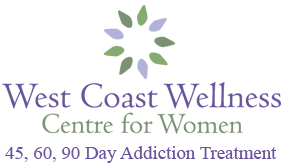Addiction treatment programs typically last for how long?
The first question most struggling addicts, considering attending a drug rehab ask is; How long does rehab usually last?
Research has shown that the length of time in drug rehab treatment is directly proportional to the number of successful outcomes, ie maintaining sobriety for longer. 60 day residential drug rehab treatment is suggested as the minimum length of time, although methadone maintenance treatment and other serious addictions suggest to last at least 12 months, with some individuals continuing for more than a year or more.
The first step that any addict will find difficult is actually acknowledging that they have an addiction; the second difficulty is then accepting that they need help. Finally, just as difficult for many addicts is agreeing to attend drug rehab treatment. By using the phrase ‘agree to attend’ it implies that there is pressure from a third party to attend, either from a parent, spouse or friend for obvious reasons. Best results are normally achieved if the addict will go into drug rehab voluntarily, so this is an obstacle which needs to be overcome by the addict and the people closest to them.
If you’re an addict reading this, it can often be difficult to face reality because it feels as though everybody will judge you. This tends to be more paranoia than reality as most people close to you will want you to recover and will therefore do everything they can to help and support you.
Even once the addict has agreed or volunteered to go into an addiction treatment program, many will worry about how the rehabilitation process will affect their lives. Like anything in life, the unknown can be unsettling. One of the issues is always ‘how long will it take’?
There isn’t a set period of time that applies to everyone when it comes to rehab. Some addicts may need a 60day outpatient program and some may need a 90-day stay an inpatient addiction treatment program to truly find their path to recovery.
It simply varies according to the addiction in question, the individual’s history with addiction, dual diagnosis conditions, and the individual’s specific physical, mental, emotional and spiritual needs. An initial assessment is required before any recommendations on answering that questions: How long does rehab usually last?
However, studies have proved that those who spend longer amounts of time in drug rehab programs achieve better rates of long-term sobriety. This is because more time spent at addiction treatment programs means more opportunity to focus on the root causes behind the addiction. If these issues are effectively addressed, the individual is more likely to be able to resist the temptation to relapse.
Generally speaking, families and friends of an addict will recognise the advantages of staying in rehab longer, and in most cases, caring friends and relatives will do all they can to cover for the addict whilst in rehab. This is an important factor in persuading anybody going into drug rehab treatment, to ensure they are not stressed about what they are missing, family responsibilities, work commitments etc, although in reality work is more likely to be jeopardised by the drug addiction itself rather than the rehab.
The important point here is, even when an addict agrees to attend rehab, the longer the rehab program, the more likely it is that it will work long term, and for this reason the support from friends and family is crucial, not only for the period of the rehab but to convince the person attending rehab in the first place that everything will be OK and they will receive the help and support needed to attend a longer course.
Drug and alcohol addiction treatment doesn’t necessarily finish once the patient leaves the rehab program either, regardless of the duration. Recovery is an ongoing process that will probably continue for the rest of the patient’s life. Long-term recovery often involves ongoing therapy, both in individual and group form, and attendance at 12-step meetings. Some patients find other activities useful as part of their ongoing recovery, such as meditation, yoga, exercise or art.
It’s important to note that many addicts don’t achieve perfect, lifelong recovery after treatment. Substance abuse recurrences should not be viewed as a failure; instead, it should be seen as one of the many obstacles to be overcome on one’s lifelong journey to sobriety. Relapse is an opportunity to reassess one’s path and get back into a program that offers the support and help needed to maintain sobriety.
Detox, the initial phase of drug or alcohol rehab, can last as little as three days. This procedure cleanses the body of drugs and alcohol and should be overseen and managed by medical professionals as the withdrawal symptoms can be uncomfortable and sometimes even dangerous. The substance used will determine the length of the detoxification process; alcohol can last a few days where heroin or meth can require a week or more. Generally, the length of stay in a drug rehab varies from person to person taking as long as it takes to gain balance and a sustainable recovery.
Short-term residency programs usually have a set amount of time, either 30, 60, or 90 days. After this time, patients are discharged, usually recommended to an outpatient drug rehab program and/or sober living environment. For many, insurance coverage determines a patient’s length of stay. For a drug rehab to be as successful as possible, it is recommended to receive support for 3-6 months in a structured, drug-free environment.
Long-term drug rehab programs can last anywhere from 90 days to a year. These programs are recommended for those who have been in and out of prison on drug charges, struggle with keeping a job or house, are in danger of becoming homeless or re-incarcerated, or have a long history of relapse.
12-step programs are worked a day at a time. However, long-term sobriety is the goal and suggests a daily reprieve. Attending meetings, working with a sponsor, and being of service will hopefully be a lifetime commitment.
5 Ways to Improve Your Drug Rehab Experience
It is universally recognized that for any rehab program to work effectively, the patient should attend voluntarily. Common sense would suggest that if somebody attends a rehab program because they want to cure themselves, then the cooperation that will result will obviously help them through the whole process.
This should not deter you, however, from pursuing Intervention Services. A proper intervention process should not lead to the addict being dragged off, screaming to drug rehab. This generally leads to nothing but becoming defensive, aggressive and they don’t benefit from the treatment and expertise on offer. A professional intervention, conducted by a trained professional should eases the subject into awareness around their destructive behaviors and gently lead them to the help they truly want and deserve.
There are some basic steps which are largely recognized as being the ones to follow, and these will improve any rehab experience and hopefully enable you to get the most out of any treatment.
1. Surrender – this refers to the process of actually admitting (as much to yourself as anybody else), that you have been beaten by your addiction, whether its substance abuse or alcohol. It means recognising that there is a way out once you can admit to yourself and others that it has beaten you and you are ready to do something about it.
2. Patience – rehab is always a gradual process and it doesn’t happen overnight. Setting achievable milestones and not expecting an immediate cure will go a long way to being successful in the end. It’s really important to set realistic expectations and not to set yourself impossible goals which will disappoint and trigger the stress and possibly the dependency once more.
3. Tolerance – this is something that can refer to yourself and tolerance towards others. There are many reasons why people lose tolerance during drug and alcohol addiction and it’s important that any rehab program includes this as an area of focus, as it’s key for any addict that needs to get their family back, to be tolerant of others, especially those who are trying to help. It’s equally as important for people, family and friends to be tolerant of the patient of course.
4. Acceptance – closely linked to self-esteem, tolerance involves accepting yourself despite your weaknesses. There are many things in life that simply cannot be changed and we run the danger of wasting energy trying to fight them. In some cases it’s just a case of accepting ourselves for who we are and then learning to manage or deal with it. Think of it in terms of a rehab program as going with the flow, accept that we are all individuals and find a way that suits you and helps you achieve your goals.
5. Finally, most people, especially the sort of people who are willing to help you, either professionally or as friends, do it because they want to and because they have certain expertise that will assist. Don’t be afraid to ask for help or advice.
Take advantage of the fact that there are experts on hand to serve you during your rehab program time.
Our best advice, is whether you attend addiction treatment programs for 45, 60, 90 days or longer, just go with the flow. The objective is to transform your life and transform it into the best version of yourself possible. I didn’t say it would be easier, but overall, the outcome, is worth the wait.
How Long Does Rehab Usually Last? ©























Leave A Comment
You must be logged in to post a comment.